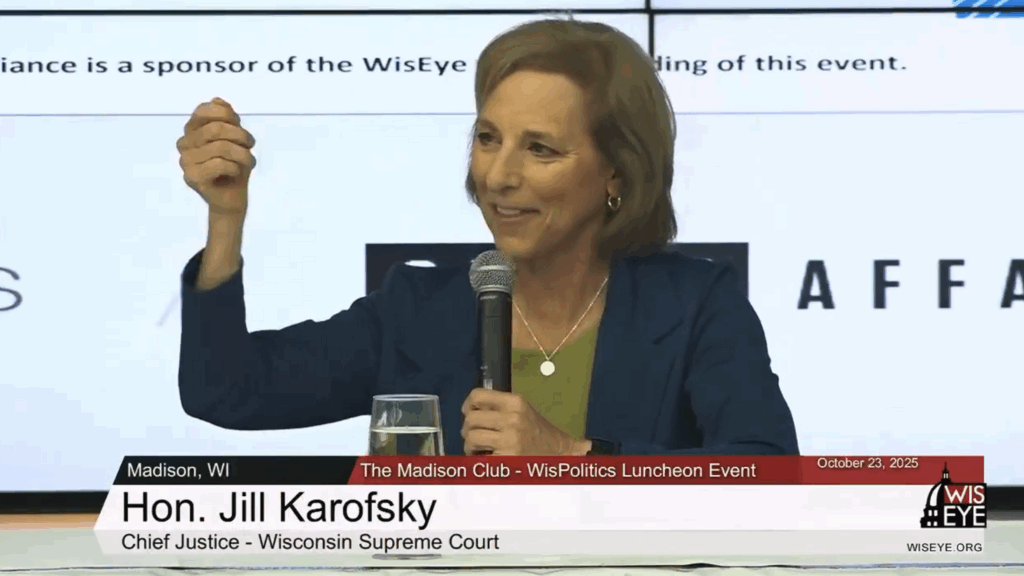Visit WisPolitics-State Affairs for premium content,
keyword notifications, bill tracking and more
Home » Featured » Karofsky optimistic state Supreme Court will get more security funds as threats spike

Chief Justice Jill Karofsky says she’s optimistic the Supreme Court will be able to secure funding needed to extend the protection now provided by four Capitol Police officers amid a spike in threats against the judiciary. Appearing at a WisPolitics-State Affairs luncheon Thursday, Karofsky said she’d also like to bolster security for the courts statewide. Her comments came days after prosecutors ...